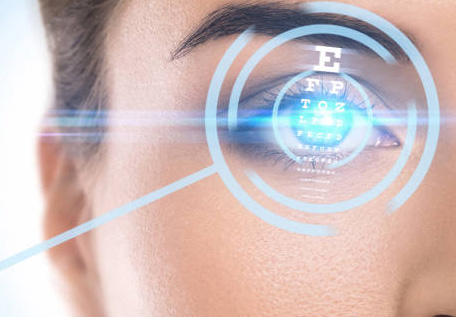
How to Avoid Stress-Related Eye Conditions
Stress doesn’t just affect your mental health but may increase your risk of ailments ranging from diabetes to high blood pressure to vision problems. Fortunately, vision issues usually improve once you feel less stressed.
What Types of Vision Problems Can Stress Cause?
If you frequently feel stressed, you may have noticed one or more of these vision issues:
- Twitching. Twitching eyelids can be very annoying and may even interfere with your vision. When you’re feeling stressed, it’s not unusual to notice tight muscles or knots in your neck, shoulders, and head, including the muscles that control eye movements. When the muscles tighten, twitching is more likely to occur.
- Blurred Vision. Stress could be the reason that your vision is blurry. High adrenaline levels can increase pressure on the eyes, causing blurry vision, according to All About Vision. Adrenaline is released when you feel stressed and is known as the “fight or flight” hormone. The hormone gives you the energy to either run away or fight enemies in a dangerous situation. Production of adrenaline increases when you feel stressed.
- Eye Pain. Sore, painful eyes may also be caused by stress. Your pupils get bigger as part of the fight or flight response. As the pupils dilate, more light enters your eyes, making it easier to see well in a potentially dangerous situation, according to Newsweek. If you’re chronically stressed, your pupils remain dilated, which could increase your sensitivity to light and make your eyes feel sore and strained.
- Dry Eye. Dry eye can also be related to stress. Frequent blinking spreads tears across your eyes. The tears moisturize your eyes, remove debris, and help keep your vision sharp and clear. If you’re feeling stressed, you may blink less often, which can cause your eyes to become dry and uncomfortable. Dry eye can also be a factor in blurry vision.
Can Chronic Stress Cause Serious Vision Problems?
Although most stress-related vision problems are minor and go away in a few hours, stress can cause long-lasting symptoms in some cases. Chronic stress may be a factor in a condition called central serous chorioretinopathy.
Vision problems occur when fluid builds up in the choroid, a layer of tissue under the retina. The retina is made up of light-sensing cells that line the back of the eyes. According to the American Academy of Ophthalmology, stress is a major risk factor in central serous chorioretinopathy.
If you have the condition, you may notice blurry central vision, dim vision, or dull colors. Lines that should be straight may appear bent or crooked, and objects might seem to be farther away than they actually are. Luckily, these symptoms usually go away on their own in a few weeks, although you may need to take medication or have laser treatment if you continue to have vision problems.
How Can I Avoid Stress-Related Issues with My Vision?
Keeping stress under control can help you avoid vision issues and protect your health. If you frequently feel stressed, try one or more of these stress-busting techniques or activities:
- Exercise. Exercise naturally lowers cortisol, a hormone produced when you feel stressed, while increasing the production of endorphins. Endorphins are chemicals that reduce stress naturally and help you feel calm.
- Deep Breathing. Inhaling deeply, then exhaling slowly can help you keep calm and centered when you feel your stress level rising. According to The American Institute of Stress, practicing deep breathing for just 20 minutes per day can help relieve both stress and anxiety.
- Meditation. Meditation helps you clear your mind and focus on the present. Although it may take a little practice to master meditation, the practice offers a simple way to control and relieve stress.
- Lifestyle Changes. Eating a healthier diet, getting more sleep, and avoiding alcohol, caffeine, tobacco, and other stimulants may also help you lower stress.
Have you noticed a change in your vision? Although stress could be the cause, it’s important to see your optometrist any time your vision changes. Contact our office to schedule a convenient appointment.


